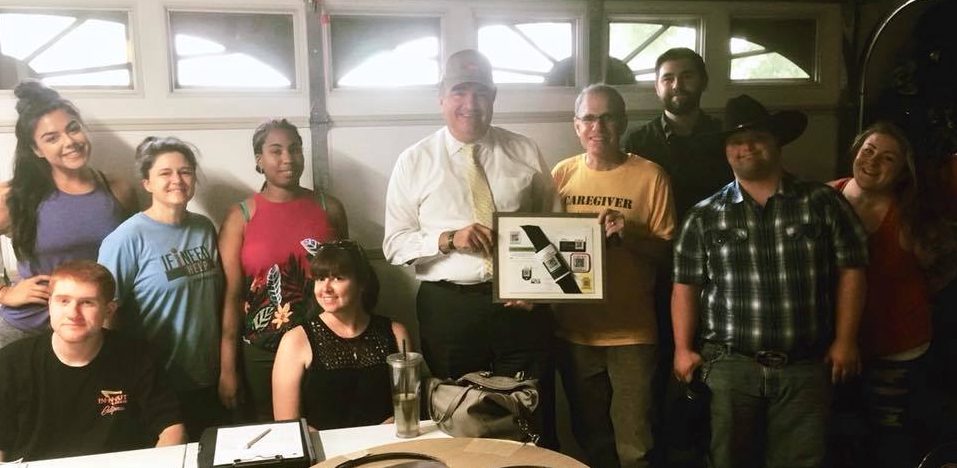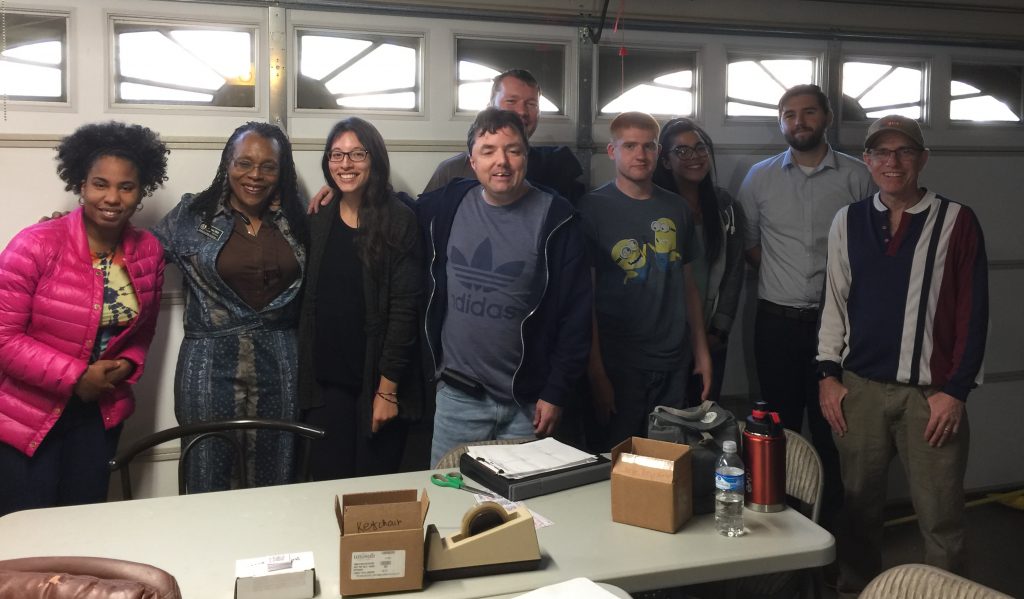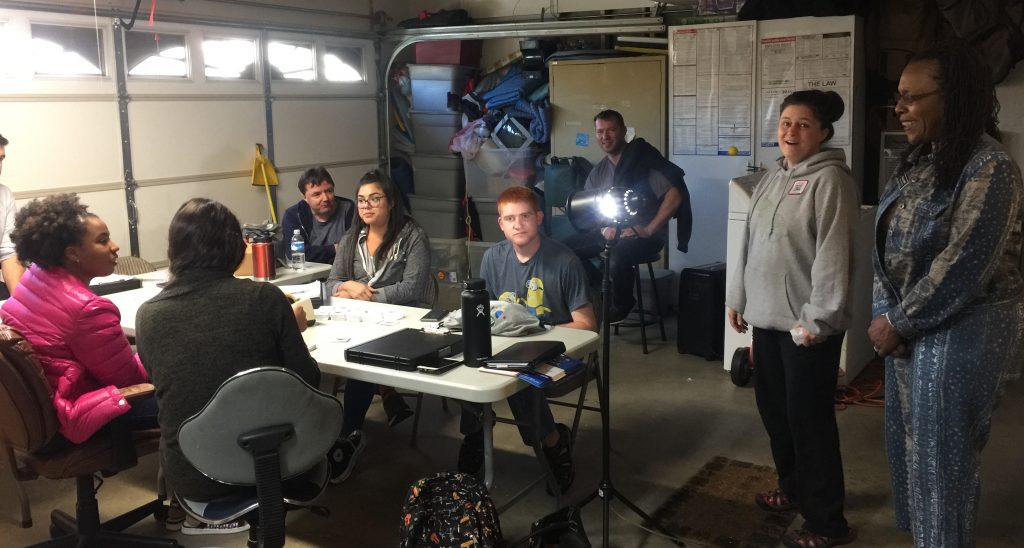Adult Services, Critical transition knowledge
3 Things I Know About Adult Services
By Jonathan Flint Executive Director of California Spectrum Care.
The world of mental health services can be a scary and unpredictable place. It’s difficult to navigate, lonely at times, and on occasion downright unfair. Although, at least for California residents, we are lucky to have the resources and services offered statewide. It’s reasonable to say it’s a tough system to navigate. From the time your son or daughter get into school, you are their advocate and doing everything in your power to increase their chances of success. Some parents are able to triumph more than others, and more times than not; it’s because they know more about available resources and the laws that govern them. Through the years, you and your child work hard overcoming challenges until eventually they graduate or age out of the school system. Through my years of experience, I’ve learned three main components about preparing, obtaining, and utilizing Adult Mental Health Services from my own trials and errors.
1. Adult Services, Preparing For Transition Is Paramount
Transition planning is of the utmost importance when discussing Adult Mental Health Services, which is why I wanted to introduce this concept first. Transitioning to independence is similar to completing a puzzle, there are many pieces and they all have to be laid out and shaped just right so that they fit together. With different shapes, patterns, and colors, you could accidentally put two pieces together that you think fit only to find out they do not. It’s ok. What most people are not willing to admit is that most of the mental health field is trial and error. Trying to make something work and finding out it doesn’t is a success in its own right, and it’s something you want to happen sooner than later. The last thing you want is to travel down a road longer than you should only to find out you’ve been going in the wrong direction. But remember, you can consider crossing out a possible solution a success because it means you’re that much closer to finding the right matching pieces
Starting the transition process five years before graduation, or as soon as possible if you are already past that point, is paramount. The reason is that as your child gets older they will have a shorter amount of time to make mistakes and find new paths. As you age, it is harder to learn new skills, find a job, and most importantly – break old habits (what we refer to as “behaviors”). Also, it gives your son or daughter a head start on thinking about their future. They are just like everyone else in this world. They’ll want to be 100 different things before they find their calling. I thought I was going to be Evel Knievel, then an archaeologist, then a movie director, then a few other things before I decided I wanted to be a Director of a nonprofit organization. Let’s not deprive our kids of that same valuable time of trial and error and experience. Simple questions like “What do you want to be when you grow up?” and “Where do you want to live?” are all valuable questions to ask someone in high school.
If you are thinking your child’s diagnosis is too debilitating for them to think about their future the way I’m describing, this still pertains to you! Don’t ever think your son or daughter is “too severe” to be more independent. One day they will need to be able to function without you. In many ways, the transition process is also about the parent’s future involvement or lack thereof. You also need to think about where you want to be in the future and how your child’s life interacts with it.
When I talk about transitioning to adult services, I think about a few main components:
1. Housing
2. Health
3. Employment/Income Source
4. Quality of Life
a. Social life
b. Social diversity
c. Self-determination
5. Support Services
a) Independent living services
b) Social skills training/groups
c) Job skills training/coaching
d) Transportation
Where do you fit in these categories in your son or daughters life right now? Where do you need to be for them to be as independent as possible, and eventually; how do you transition out of each of them systematically?
Quick side note: Your plan is your plan. I’m not trying to lecture that 100% independence is what your plan should be or that you’re wrong if your plan or opinion is different than most. I’m simply stating that your child could be without your assistance one day and that in itself is something to plan for.
Continuing on, at the end of the day these aspects of your son or daughter’s life are essential. All of the components above interact with each other in some way and they need to be able to do so cohesively. Setting up a system where your service providers work together, target goals together, and operate in a consistent fashion can be planned in your IEP, IPP, or a MAP (making action plans) meeting when starting a new service.
2. Perfection Should Not Be The Gold Standard
When the leadership team and I co-founded California Spectrum Care we sat down and really thought about what we wanted to do as an organization. What would the function of the organization be? Why were we creating this program? We felt all roads lead back to neurodiversity.
I think the stigma around mental health is changing quickly, or at least faster and on a broader scale than it was before. However, a lot of the conversation is about what society or the general public can do for the developmentally challenged population. We want to spread awareness, get people educated about Autism Spectrum Disorder, and other diagnoses yet we teach little acceptance. On the other hand, I have experienced a culture within the population I serve that lacks accountability for what we should all be doing as service providers. We also need to be aware of the needs and concerns of the general public.
I’m not saying it’s the client’s sole responsibility to be accepted by the general public. I’m saying that there needs to be a compromise between the diagnosed population and the general public. We can’t expect the general public to be ok with someone having a meltdown in the middle of Starbucks because their triple chocolate swirl is going in the wrong direction. But, we can expect the general public to listen to an iPad communication application when taking an order for that triple chocolate swirl. We can teach accommodation, acceptance, and awareness to both sides of the fence until it appears that there is no fence at all.
The clients I serve are wonderful and not weak by any means. They face bigger challenges than I do, and I respect that about them. I have a duty to teach them and ready them for the next phase of their life, whatever it may be. I also have a duty to teach the world around me how to work with them, how to let down their own social inhibitions, and generally accept that they will meet people who are not like them.
So, when I say perfection isn’t the gold standard, I mean celebrate the progress that your child makes and celebrate who they are. Better yet, accept it. If they are happy, healthy, and safe, who’s to say anything is wrong? That could become the ethical debate of the century. But I like to think that we are all just a little different and none of us are perfect. Let’s accept people for who they are, teach them the skills they absolutely need and help them achieve the goals they want to accomplish. It’s very easy to get hung up on the parts of someone’s life or behavior, as a service coordinator, that isn’t necessarily holding the client back. We should prioritize someone’s skill development and then objectively look at who they are as a person and what really needs to be changed for success.
3. Freedom of Choice

Assemblyman Dante Acosta learning about California Spectrum Care and If I Need Helps Wearable iD & Special Needs Registry
We need to stop making choices for adults in Adult Services. Is there fine print in that statement? Yes. It reads: “If they are not impacting their immediate health, life, or mental wellbeing – let them learn from their own actions.” I can’t stress this enough. However, this all ties in with our first point. You need to allow your child to have enough time to make mistakes. Incidental learning and the power of choice is something that cannot be matched. It is the most natural way to live your life and learn in the process.
If you are a parent of a teenager (or older), you know that power struggles can be exhausting, long lasting, and damaging to a relationship. There really is no winner. At the end of the day, we should empower individuals. One day we won’t be there to protect them and the confidence we instill in our youth now will help them out when we are not able.
How can we translate this into adult services?
I think the best way to do this is with person-centered planning. All goals should follow what the client wants as long as it isn’t inappropriate or unfeasible beyond the means of the support staff. You should never be limited to what your service provider can do or what they are willing to do. If you are, find a new service provider. They shouldn’t take up your time or effort (and vice versa) if the goals of the client cannot be achieved in theory.
We should also never condemn, judge, or quickly critique someone’s goals and ambitions. We are who we are, so let’s be accepting. It’s your child’s life to live. They deserve to pursue it. Some might find this outlandish. I can hear my customized employment mentor now… “Jon, don’t get caught in the dream job trap!” Well, he has a point, but again, everyone deserves a shot to prove themselves. After that, we can talk about more realistic goals to obtain their dream and use earlier goals as a catalyst for success.
Removing the power struggle and giving the reins over to the person who has to live with their outcomes is what creates the human element missing from some adult services. Once we start teaching the art of doing something for yourself and for your future, the quicker we get away from the Applied Behavior Analysis style reward systems that are unnatural.
Jonathan Flint is the Executive Director of California Spectrum Care. California Spectrum Care is a Southern California nonprofit dedicated to servicing individuals diagnosed with autism and other developmental disabilities
If I Need Help makes wearable iD and offers a free Caregiver controlled special needs registry for our loved ones who may wander or need assistance in a critical moment.
The Lookout
The lookout! NonVerbal Autistic ESP
I am not generally a believer of extrasensory perception, ESP.
However, there are some things that occur that make me feel there are things we don’t understand. If you take away one of a person’s senses, eyesight or hearing are the usual examples, that person’s remaining senses improve. That has been scientifically studied and proven. I wonder, if you remove a facet of a person’s ability to communicate, will other communicative abilities make up for it? My sons are both nonverbal autistic. While my oldest will repeat one syllable words, my youngest has never spoken. Somehow they communicate with each other. They plan heists, usually cookies or other sweets. My funniest example is the first time I caught them. I would see my 2 year old at the time stick his head out the kitchen door, smile, giggle, and go back to hiding. After the third time, I got suspicious. Yeah, I know, the silence from the other one should have clued me in. So, I sneak around the back way and to my surprise I see my oldest son teetering on his tippy toes on the chair reaching for the cookie jar on top of the refrigerator. My youngest son was obviously acting as the worst lookout. To this day, I regret my next action. Worried about the precarious position my oldest son was in and taking my responsibility as protector of cookies and appetites, I shouted, “what are you doing?” my oldest looks at me in horror and quickly gets down. My youngest never looked back, running straight ahead to his room.
To this day, I wonder, what would have been the plan if I got up to go into the kitchen the normal way. How would the lookout have warned his brother?
The Lookout NonVerbal Autistic ESP
Armando Sandoval
The Autism Society of Texas-El Paso
https://www.facebook.com/AutismSocietyEP/
If I Need Help makes wearable iD and offers a free Caregiver controlled special needs registry for our loved ones who may wander or need assistance in a critical moment.






